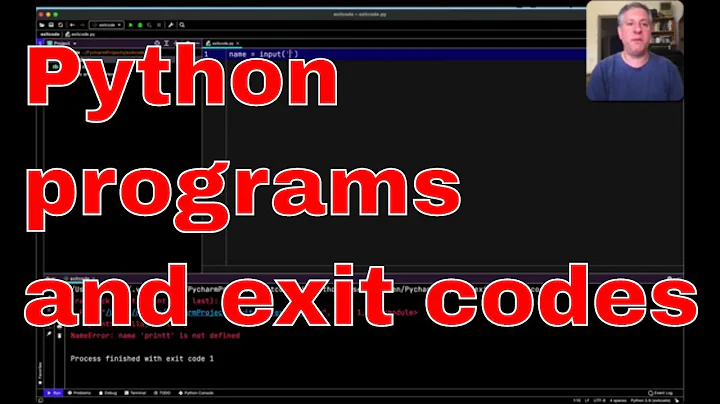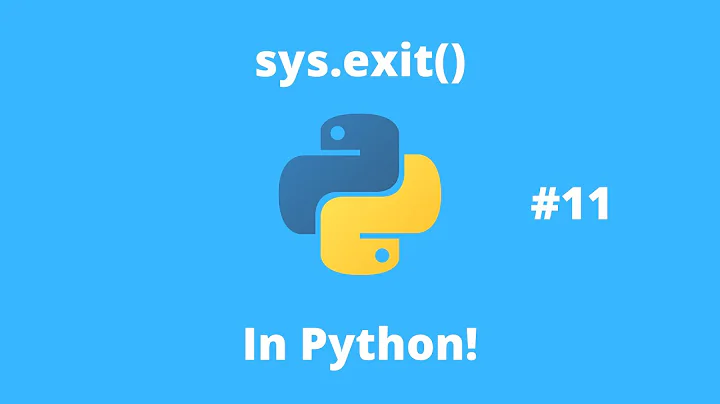How to quit Python function, throwing error statement without quitting Python interpreter
You have two options (at least).
Using a return statement:
def do_something(parameter):
if parameter > 100:
# display error message if necessary
return # 'exit' function and return to caller
# rest of the code
You can also return soemthing passing the something value back to the caller. This can be used to provide a status code for instance (e.g. 0: success, 1: error).
Or a better approach is to raise an exception:
def do_something(parameter):
if parameter > 100:
raise ValueError('Parameter should...')
# rest of the code
try:
do_something(101)
except ValueError, e:
# display error message if necessary e.g. print str(e)
See exceptions in the Python manual.
There are built-in exception classes (like ValueError above). You can also define your own as follows:
class ParameterError(Exception):
pass
You can also add additional code to your custom exception classes to process parameters, display custom error messages, etc...
The built-in exceptions are listed here.
Related videos on Youtube
Comments
-
Gyan Veda almost 2 years
I'm new to Python and struggling with handling self-defined errors. When my code spots the error, I want it to throw an error in red font and take me back to the Python terminal without killing Python.
I came across sys.exit() looking for an answer, but it quits Python completely. Do you know of an alternative that throws back an error in red font and takes me back to the terminal?
This is what I have so far.
import sys def do_something(parameter): if parameter > 100: # quit the function and any function(s) that may have called it sys.exit('Your parameter should not be greater than 100!') else: # otherwise, carry on with the rest of the codePlease let me know if I'm not clear and I'll be happy to provide more details. Thank you all in advance!
-
 anon582847382 about 10 yearsSee if
anon582847382 about 10 yearsSee ifprint(error_msg)and thenexit(1)works. I'm on a mobile device at the moment so I'm not sure!
-
-
 Admin about 10 yearsOf course, this doesn't work if the code in between does
Admin about 10 yearsOf course, this doesn't work if the code in between doestry: ... except Exception: ... -
Daniel Roseman about 10 years@delnan but why would anyone ever do anything like that :-)
-
 Admin about 10 yearsPerhaps out of ignorance (I see many beginners just doing
Admin about 10 yearsPerhaps out of ignorance (I see many beginners just doingexcept:), perhaps because they really want to catch all exception out of some misguided sense of "reliability" (sometimes seen in intermediate programmers), perhaps because catching (almost) all exceptions really is the correct thing to do at this point, e.g. you're running arbitrary code (e.g. a hook) and need to be robust against errors in that code. -
 Admin about 10 years
Admin about 10 yearsreturnonly returns to the caller, which is not necessarily the REPL. As for exceptions, they can (and frequently are) caught. -
 Admin about 10 yearsHuh? The answer still is "
Admin about 10 yearsHuh? The answer still is "returnor raise an exception", and my objections to both still stand. -
 isedev about 10 yearsI think you are interpreting the question far beyond the OP's intent.
isedev about 10 yearsI think you are interpreting the question far beyond the OP's intent.


![[Solved] No python interpreter configured for the project pycharm](https://i.ytimg.com/vi/KLl1tXoaNgk/hq720.jpg?sqp=-oaymwEcCNAFEJQDSFXyq4qpAw4IARUAAIhCGAFwAcABBg==&rs=AOn4CLAKpWI2LgQYqRaGZXMIniX01WNF2w)





